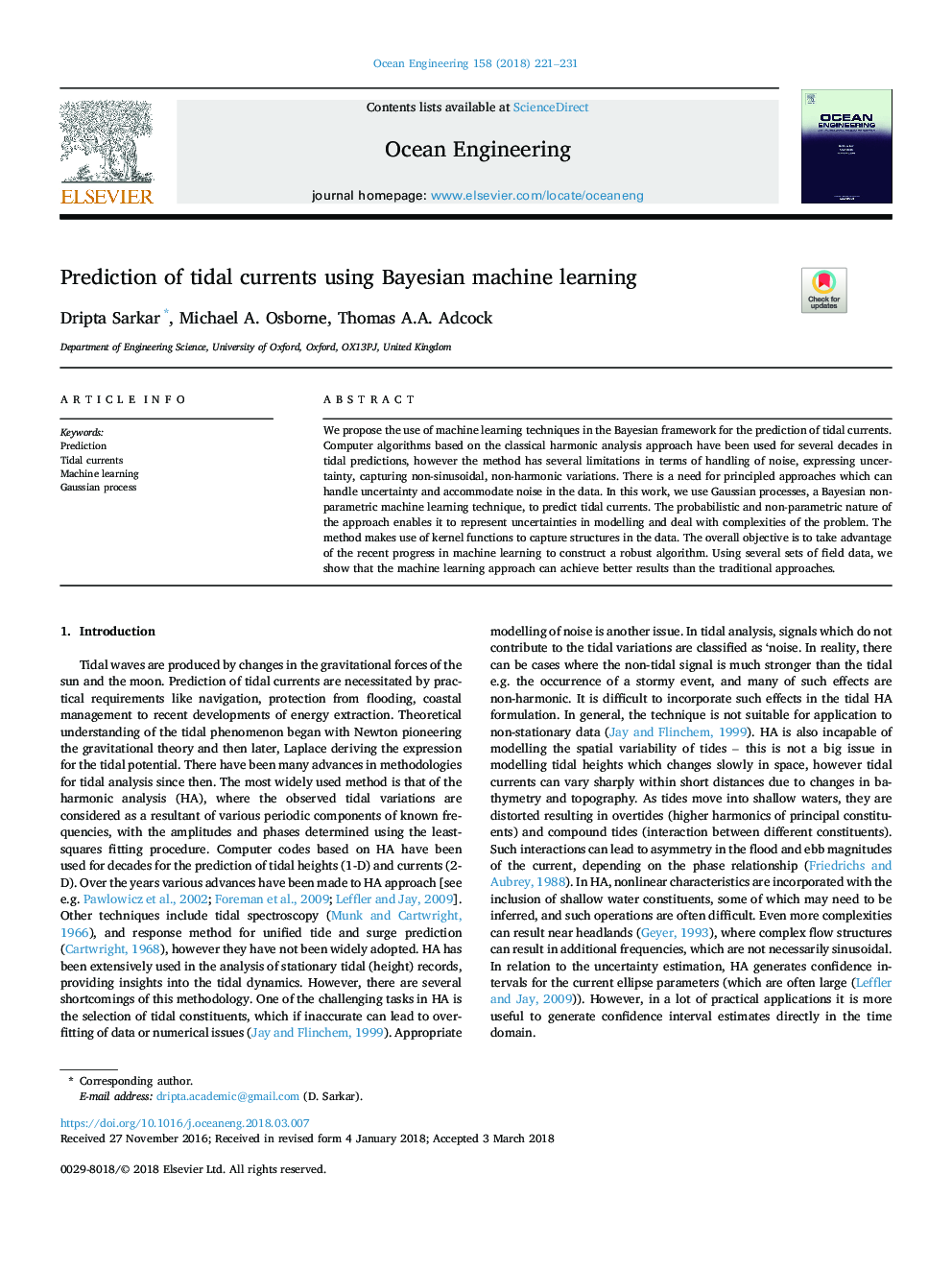| Article ID | Journal | Published Year | Pages | File Type |
|---|---|---|---|---|
| 8062403 | Ocean Engineering | 2018 | 11 Pages |
Abstract
We propose the use of machine learning techniques in the Bayesian framework for the prediction of tidal currents. Computer algorithms based on the classical harmonic analysis approach have been used for several decades in tidal predictions, however the method has several limitations in terms of handling of noise, expressing uncertainty, capturing non-sinusoidal, non-harmonic variations. There is a need for principled approaches which can handle uncertainty and accommodate noise in the data. In this work, we use Gaussian processes, a Bayesian non-parametric machine learning technique, to predict tidal currents. The probabilistic and non-parametric nature of the approach enables it to represent uncertainties in modelling and deal with complexities of the problem. The method makes use of kernel functions to capture structures in the data. The overall objective is to take advantage of the recent progress in machine learning to construct a robust algorithm. Using several sets of field data, we show that the machine learning approach can achieve better results than the traditional approaches.
Related Topics
Physical Sciences and Engineering
Engineering
Ocean Engineering
Authors
Dripta Sarkar, Michael A. Osborne, Thomas A.A. Adcock,
